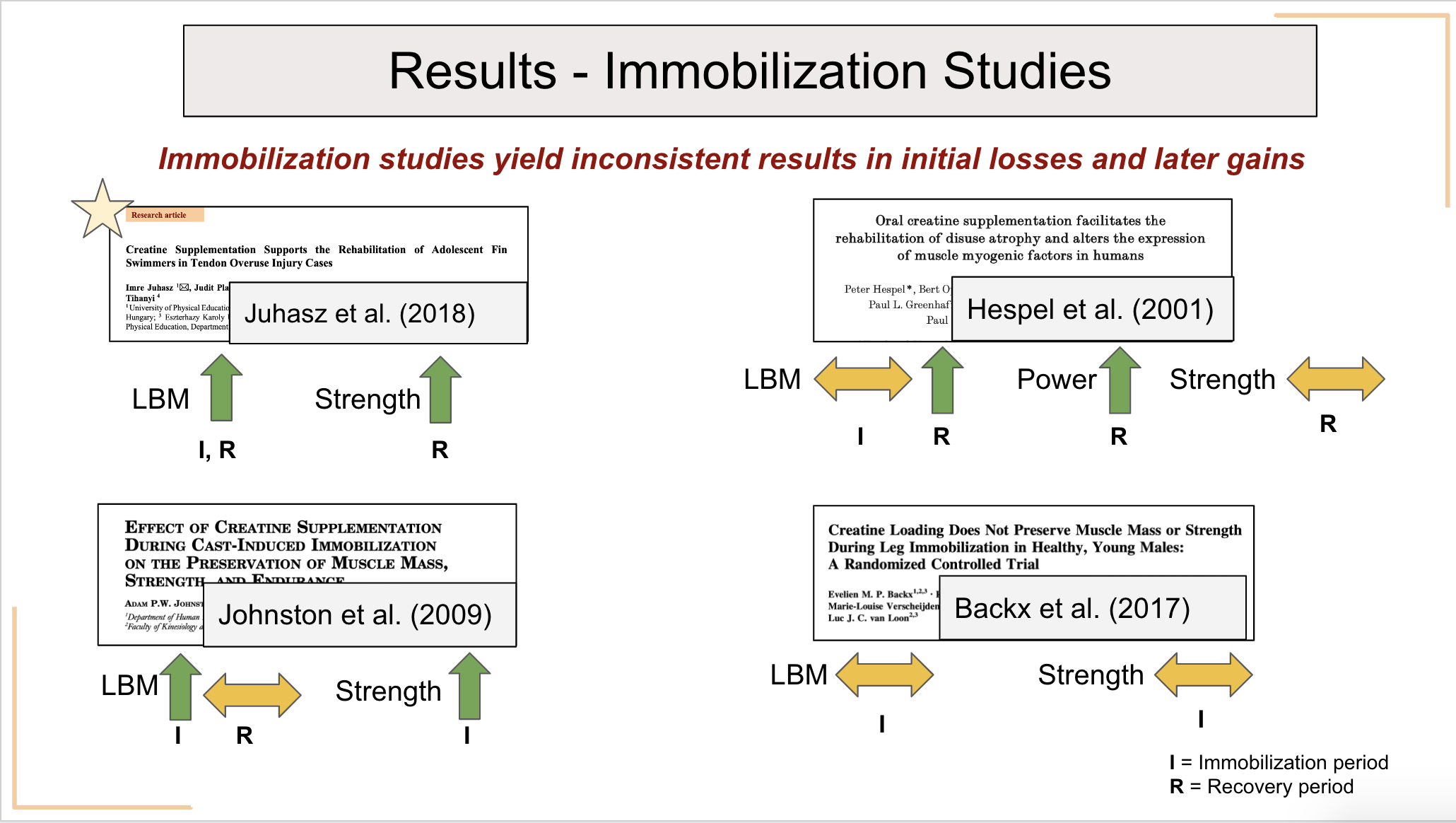Creatine Supplement Research
In the fall of 2021, I took a course entitled Seminar for Nutrition in Sport and Exercise. The course culminated in an individualized research project in a topic of our choosing. Fascinated with the dietary supplements in athletes, I researched the role of Creatine supplementation and its effectiveness in injury recovery in athletes. See sample slides below:













Injury is a concern among athletes, most commonly resulting in muscular tensions, fractures, and lateral knee injuries). Injuries and surgical interventions require a period of immobilization, thereby reducing muscle contraction and activation and weight bearing activities. Consequences include muscle disuse atrophy at a rate of 0.5% per day, a decline in muscle protein synthesis by 50%, and muscle tissue loss of 150-400 g in the first 1-2 weeks and can result in physiological and functional muscle mass and strength losses. These decrements increase recovery time and reduce performance upon returning to sport.
The idea of “rehabilitative nutrition” has been of increased interest for the purpose of using nutritional and dietary supplement interventions alongside traditional recovery protocols for athletes. Creatine monohydrate, a popular ergogenic aid, has been recognized for performance enhancements through primary role in energy metabolism of increasing intramuscular PCr concentrations and rapid ATP re-synthesis. However other physiological mechanisms of creatine are also purported to underpin injury recovery through increasing energy turnover during tissue recovery through greater phosphagen mediated ATP re-synthesis, stimulating myogenic anabolic pathways from increased water retention, reducing markers in cell damage, acting as a direct/indirect antioxidant during oxidative phosphorylation
Published reviews on the topic reveal mixed findings to creatine’s benefit in injury recovery. So, I aimed to answer the following: does creatine supplementation yield any therapeutic outcomes for athletes after injury and/or during rehabilitation? While there were many outcomes evaluated, lean body mass, strength, and power were common parameters assessed. And studies looked at these to determine whether creatine attenuated these losses or enhanced gains in these parameters in rehabilitation.
After reviewing the existing literature, I felt that the studies were not strong enough to arrive at a clear conclusion regarding the impact of creatine supplementation on injury recovery in athletes. Due to inconsistencies in supplementation dosing and duration, length of immobilization protocols, participant training status, and location and classification of injury. The studies also lacked generalizability, so it was difficult to extrapolate the results. There are also the challenges to supplement research such as individual responsiveness to supplement usage.
In advising the public on creatine supplementation, I would not necessarily recommend for creatine supplements as a nutritional or pharmacological recovery aid for injured athletes. However, since side-effects were rarely reported in these studies, I would not recommend against its usage either. I don’t see the issue in someone taking creatine supplements for the duration of their injury, in the case that it can work to attenuate muscle atrophy and restore muscle function faster. However, risks do come with them not being proven to be 100% safe/effective, thus I would emphasize a food first approach.